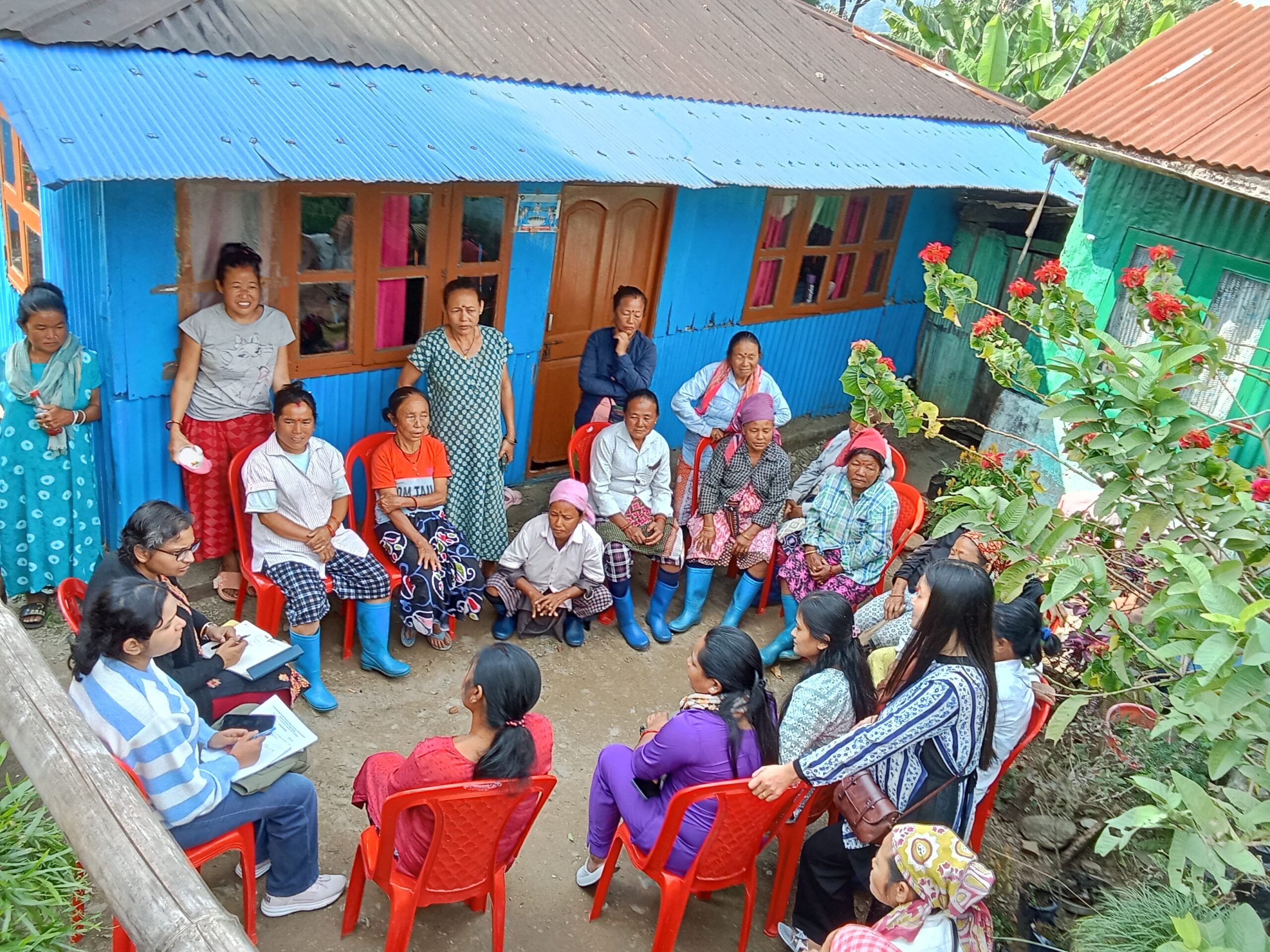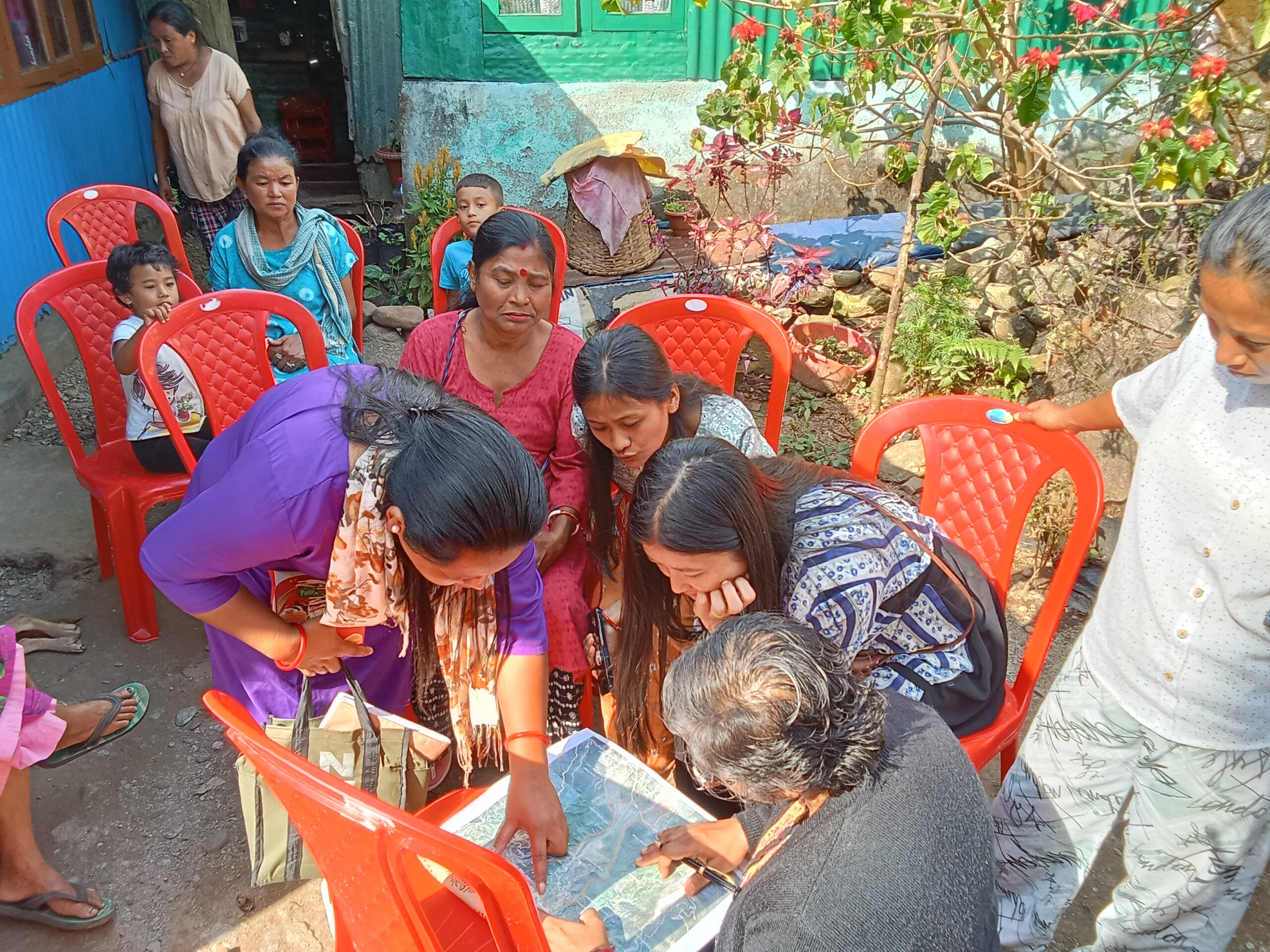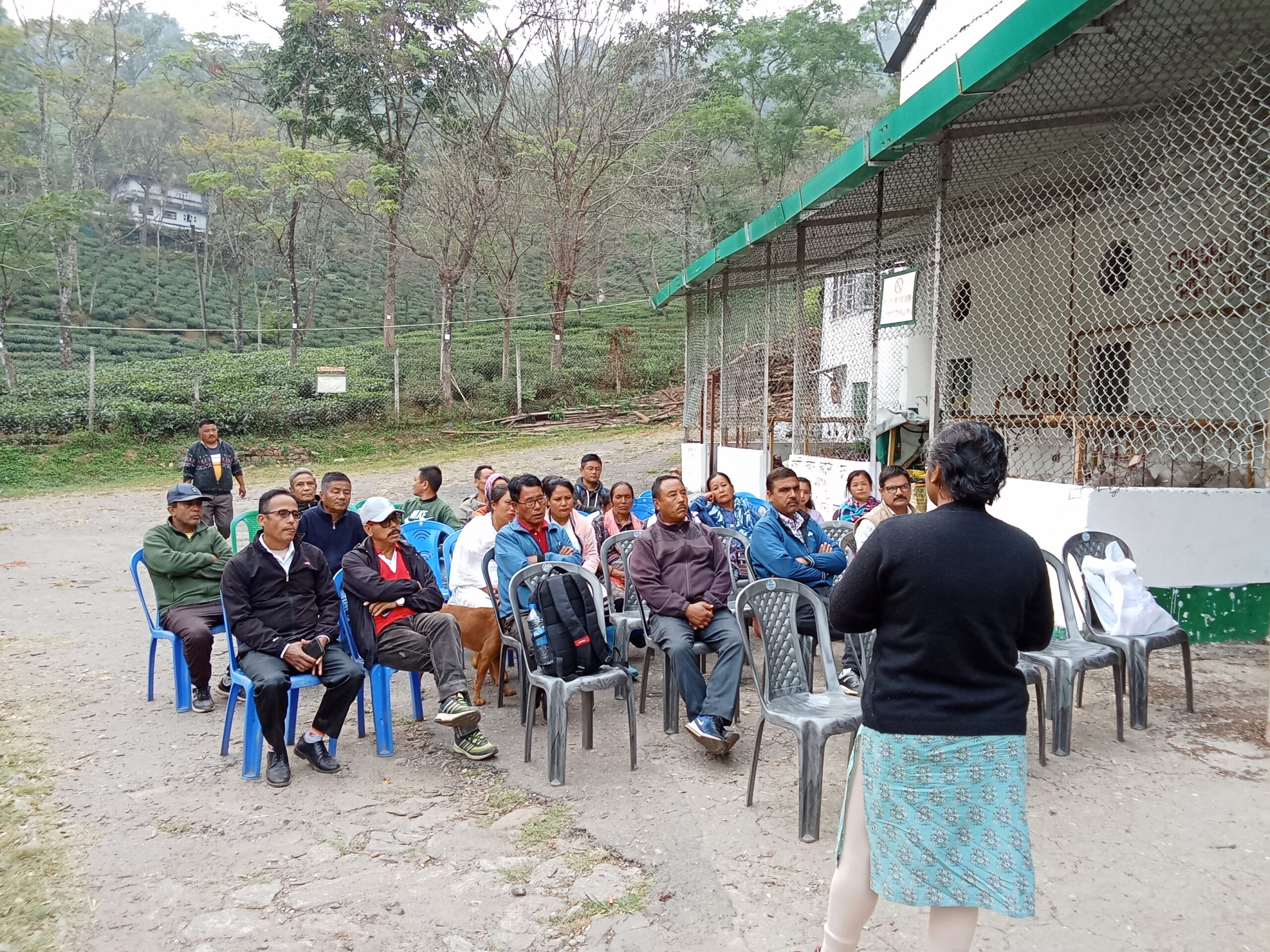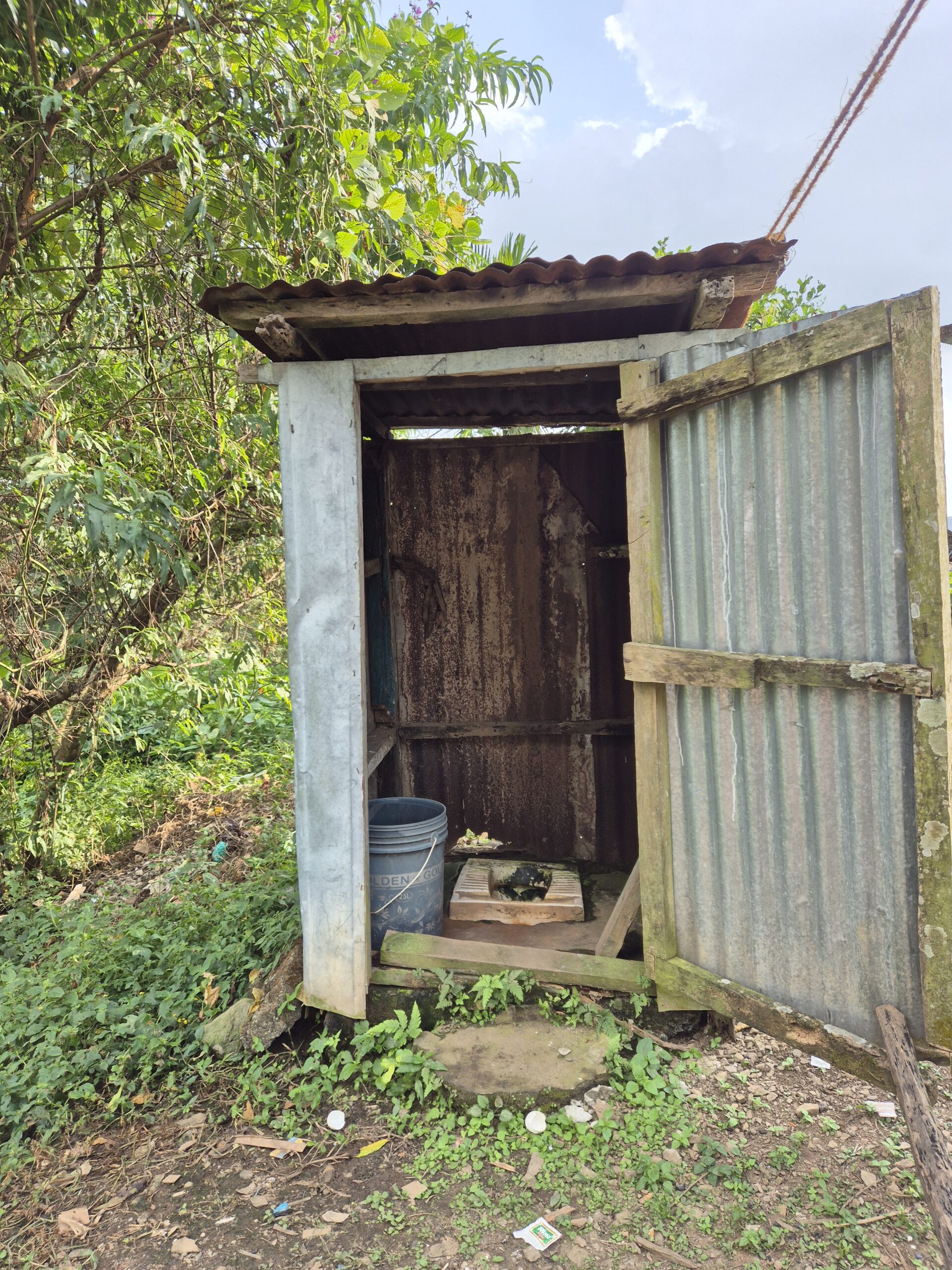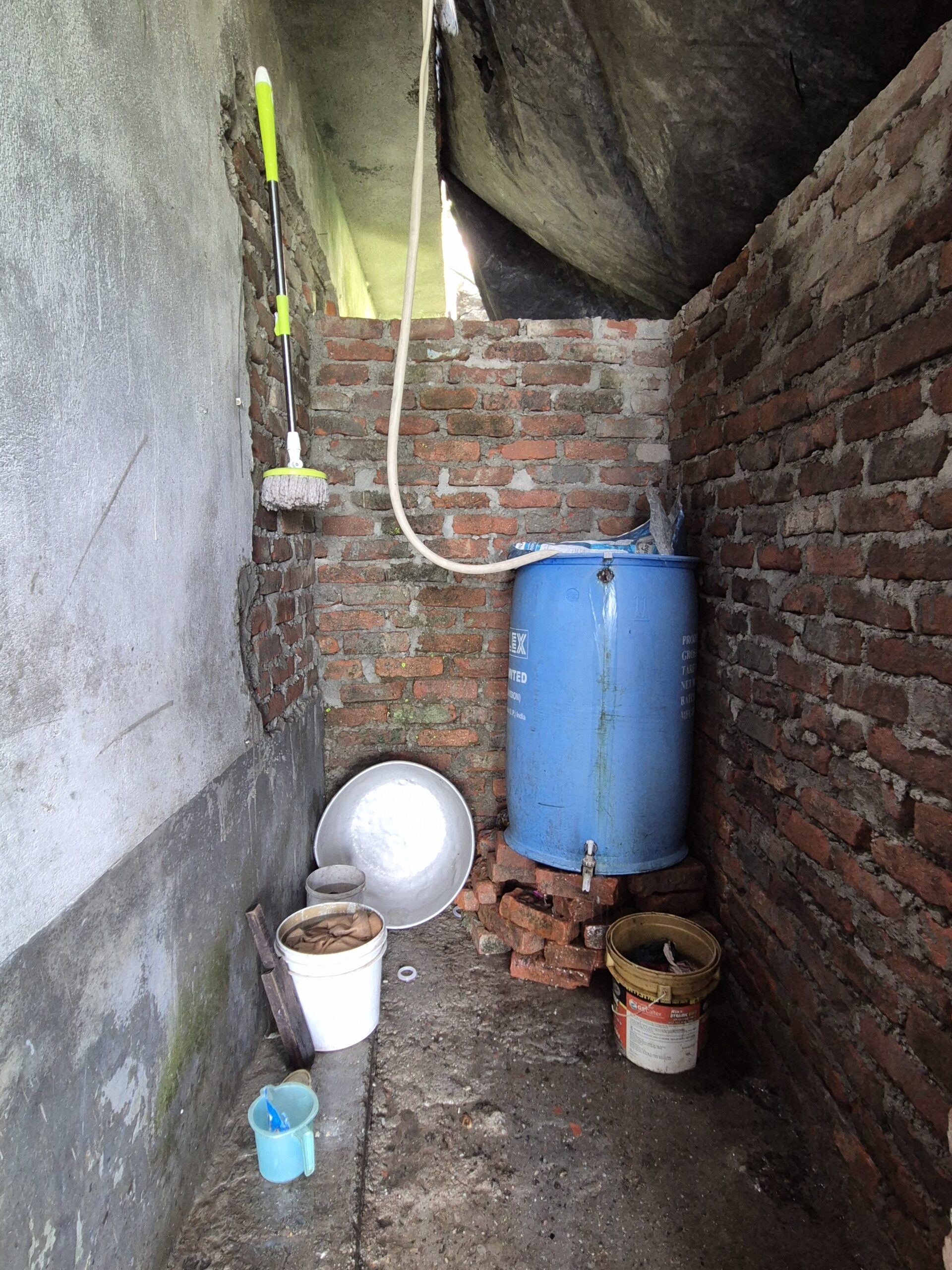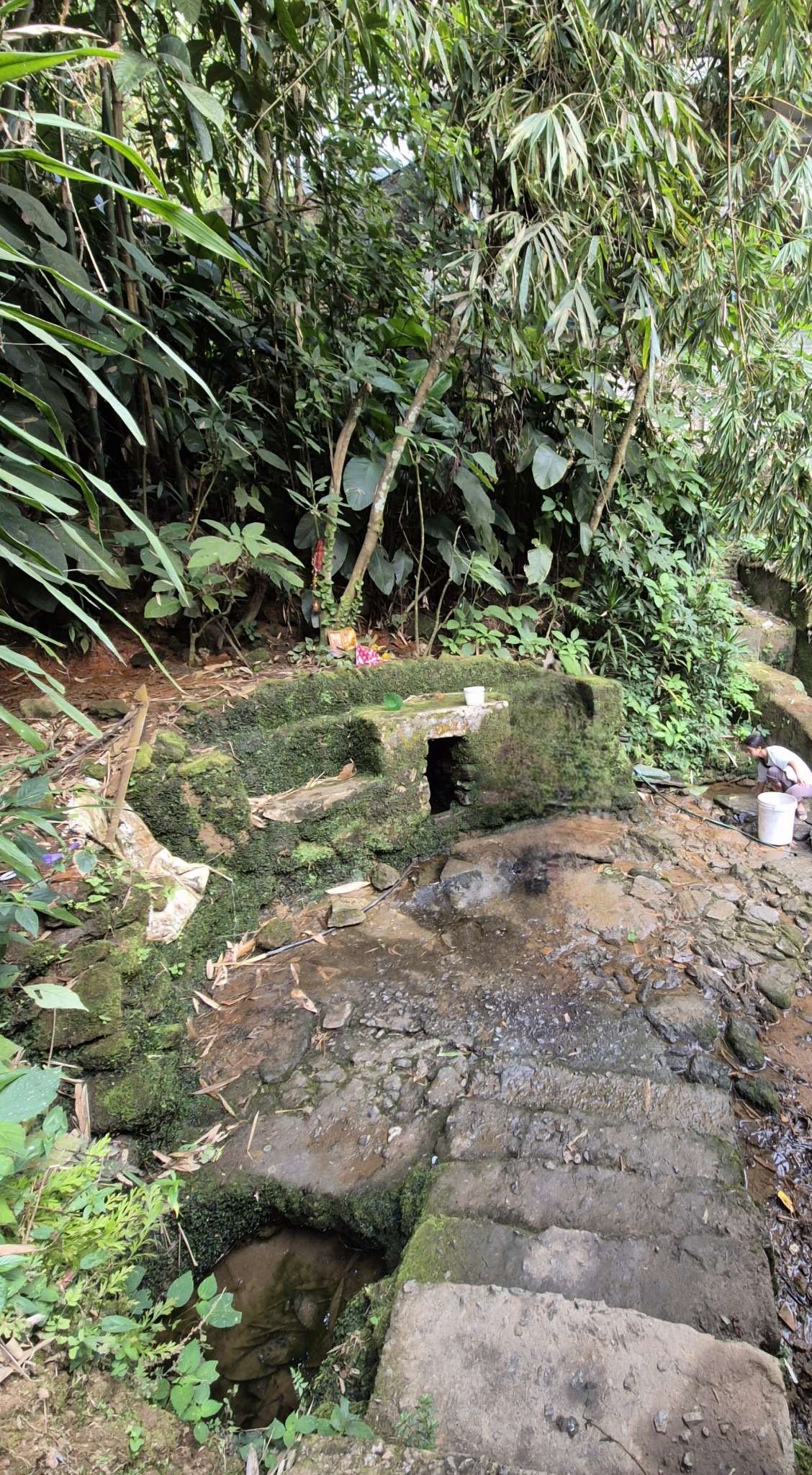Fostering Climate Resilient Water Security through Community Action in the Darjeeling Himalayas

Written By: Souhardo Chakraborty and Bedoshruti Sadhukhan
“We need to make multiple trips on foot along treacherous mountain trails to small groundwater upwelling points, located 300 metres downhill, starting from 3 AM in the morning to collect water. If we delay then we must wait hours for groundwater to refill the well, because others would have already scraped the limited resource by then”, says Sudip Lama (name changed), a resident of Upper Dara Gaon in Nagri Farm tea garden (TG).
Availability of and access to water is an emotive issue in Upper Dara Gaon and in many such remote hamlets of the Darjeeling Himalayas. The water sources of the Darjeeling Himalayas are largely spring fed and are heavily dependent on rainfall. The Indian monsoon has historically been infamous for being erratic, and recent studies reveal that the unpredictability has been increasing in recent years, probably due to climate change. This is particularly painful for the huge population in the Himalayan ranges that are living in remote, inaccessible areas, and still reliant on springs and streams for their water source. The dry season (November to April), when these sources diminish, creates major scarcity challenges for the residents.
The Himalayas in the Darjeeling district of West Bengal are dotted with tea gardens, contributing majorly to the local economy. The Darjeeling district produces some of the finest teas that have been awarded the Geographical Indication (GI) trademark in 2004. Being a labour-intensive industry, tea estates provide income to a huge population from nearby indigenous communities and migrants coming from the adjacent districts of Malda, Cooch Behar, Jalpaiguri and even neighbouring state of Bihar. While tea gardens provide livelihoods for many, the people living there often face significant challenges, with limited access to essential public facilities like water supply and sanitation, making daily life quite difficult.
Water security, defined as reliable and sufficient access to clean and safe water for livelihoods, public health and economy, is an important cornerstone for sustainable development. However, access to and availability of such water for the communities located within the tea gardens of the picturesque Darjeeling Himalayas is a major concern. Other factors which affect the availability and access are population growth, pollution, contamination, and seasonal scarcity.
ICLEI South Asia is implementing the Community-Led Climate Resilient Water Security in Two Tea Garden Districts in Northern West Bengal project in Kurseong and Jorebunglow-Sukiapokhari blocks of Darjeeling district to address these issues and improve the water security in the region. Four tea gardens – Gidda Pahar, Rohini, Dhajea and Nagri Farm, in these blocks were identified based on, among other things, their area covered, the population living in them and the watershed in which they fall. One hamlet per garden will be selected for a deep dive study. In November 2024, ICLEI South Asia conducted a site visit to identify the deep dive hamlets and assess basic service-levels.
Preliminary investigation, site visits, focused group discussions (FGDs) and stakeholder consultations revealed water scarcity, inadequate infrastructure, and poor sanitation as common issues across all the shortlisted locations. Communities and stakeholders identified chronic water shortages during the dry season, which have become more acute and exacerbated over the years. On the other hand, demand for the limited resources have increased due to increasing temperatures and population. This indicates the influence of climate change and/or population increase. The FGDs further revealed that there is a general lack of any organised system for water supply either governmental or non-governmental. The government stakeholders however mentioned that the Jal Jeevan Mission, a scheme of the Ministry of Jal Shakti, Government of India has been recently launched and the hamlets of the study area will soon be covered under the scheme. The prevalence of water borne diseases like diarrhoea and typhoid were also highlighted by the community of all locations, and it can be linked to poor sanitation practices and compromised water quality in the hamlets. While challenges were similar across locations, their severity varied from one to another. For example, while the availability of water is the main issue for communities of Nagri Farm TG, on the other hand, Godamdhura hamlet, perched on a cliffside in Gidda Pahar TG, has limited space for infrastructure. Sanitation facilities are thus inadequate, leading to a higher prevalence of diarrhoea and typhoid.
These issues need to be addressed at the policy-level to ensure a holistic solution. Such policies should encourage climate resilient infrastructure tailored to local topographies. Integrated Water Resource Management (IWRM) and localised water security planning by integrating scientific assessments with traditional knowledge ought to be promoted through such policies. Emphasis should be placed on capacity building of stakeholders and communities to undertake water security planning and management measures. The community driven IWRM framework and water security plans being developed by ICLEI South Asia for its project in the Darjeeling Himalayas can be helpful to achieve this. The project also proposes to facilitate platforms that bring together government agencies, local communities, private stakeholders, and NGOs to co-design, implement, and monitor solutions. The outcomes of this project could serve as a blueprint for similar challenges in other tea garden regions, fostering a sustainable and water-secure future for the Darjeeling Himalayas.
